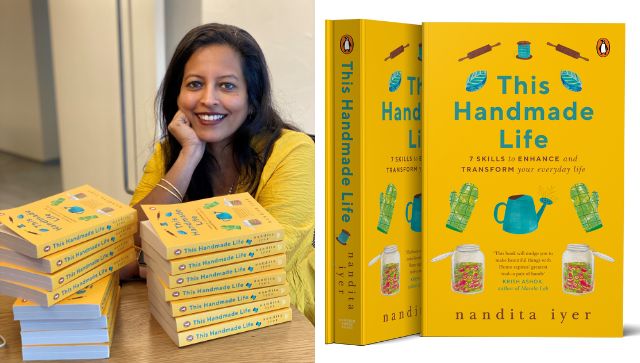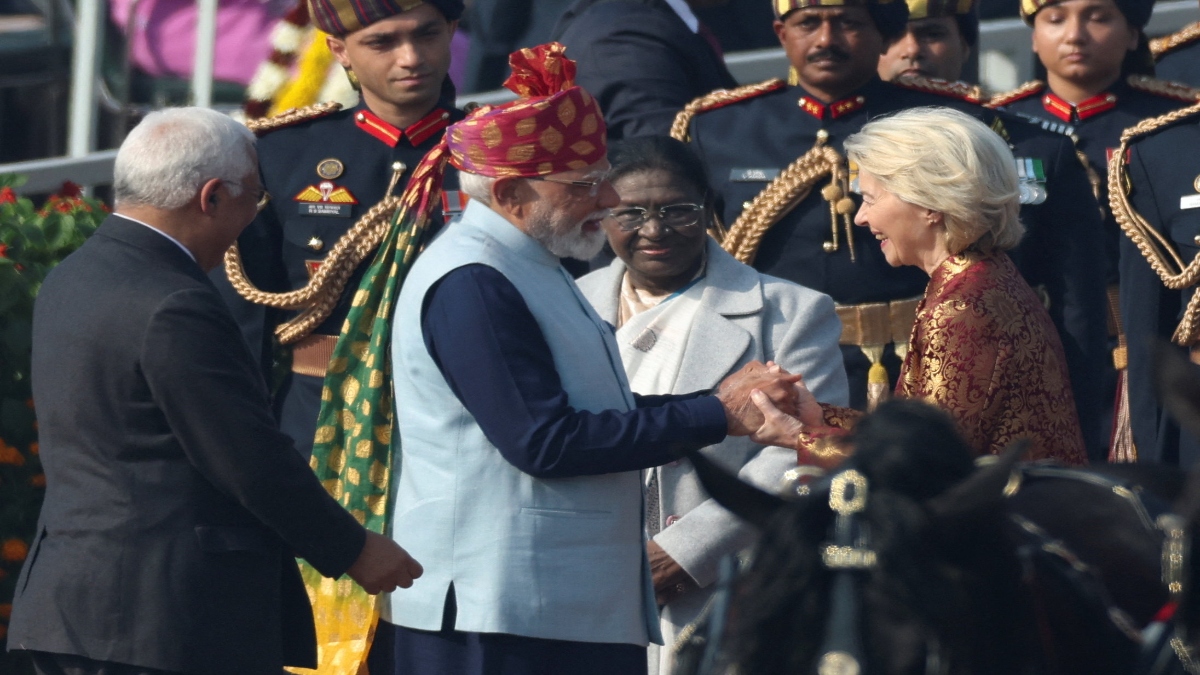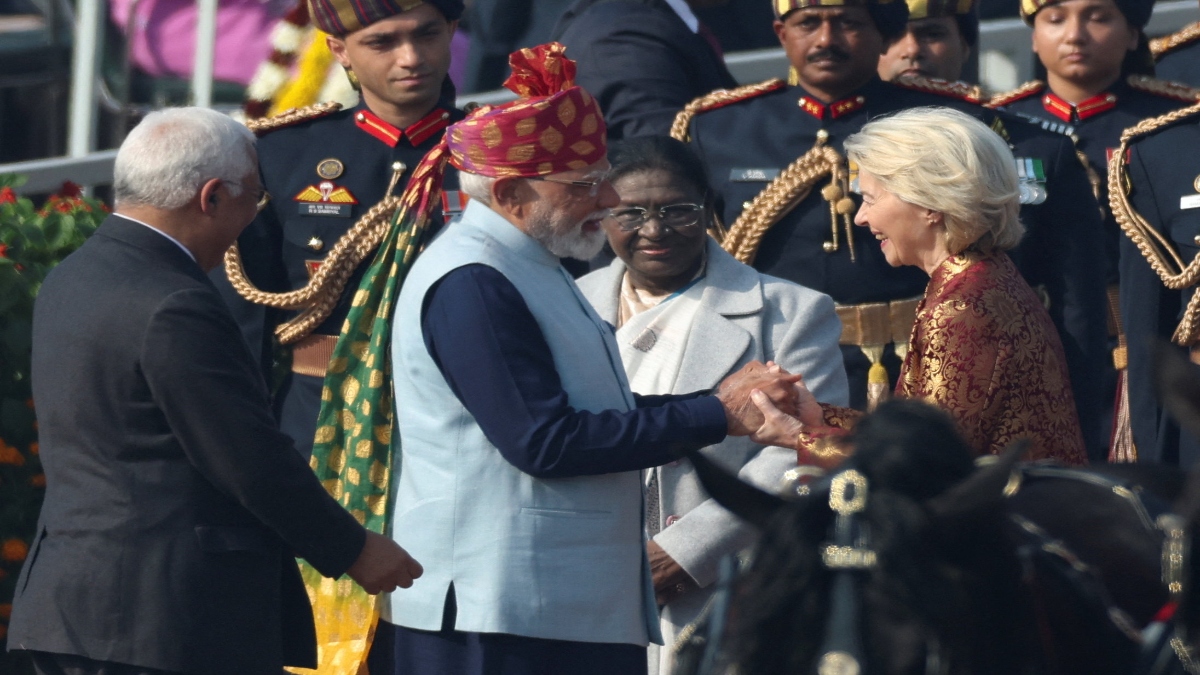Nandita Iyer, who is an author, columnist, and Hindustani classical singer, has written a commendable book called This Handmade Life, which I found immensely soothing to read.
She writes in an encouraging voice that makes it easy to be receptive to new ideas. You may not try out even half of them but that does not matter as long as you feel energised from reading about baking, fermenting, spice-making, kitchen gardening, fabric art, soap-making and skincare. If you are enthusiastic, you can even learn how to turn hobbies into businesses.
The book has been published by Ebury Press, an imprint of Penguin Random House India.
I picked it up because it promised to lead me back to joy and creativity outside the sphere of work. Don’t get me wrong. I love my work but I spend much of my week doing it diligently, and creating more work for myself. This coping mechanism served me well during the early phases of the pandemic when financial anxiety was at its peak, and there was also a fear of becoming grumpy and frustrated without something meaningful to be occupied with.
I do not need to function like that any longer because things are better now. I have known this for a while but Iyer’s book reinforced the thought that I am now ready to move on and immerse myself in activities that have less to do with being productive and more to do with simply relaxing, having a good time, exploring, making, and just witnessing what happens.
This is hard for many of us who derive so much fulfilment from work that we feel that we do not need a hobby. We tell ourselves that we are lucky to be earning our livelihood from what gives us pleasure. Is this how things really are, or are we cooking up this story to avoid guilt? Capitalism has taught us that time is money, so leisure time is often low on our priority list.
Perhaps I should speak only for myself. I used to doodle, learn lyrics of songs, sing, go to the beach, write letters, check out art shows, try simple recipes, but I have not been doing these things. I hardly go to events. I haven’t made a new friend in a long time.
Iyer’s book held up a mirror, giving me the space and time to acknowledge that my identity has become too closely bound with what I do for a living. I need to loosen up, breathe, be kind to myself.
Can hobbies really help with this? Iyer shows how creative projects can improve our mental health, help us be more in the moment, teach us new skills, reduce the amount of time we spend with our electronic devices, have meaningful exchanges with our family and friends, develop a new social circle, and find contentment in making something with our own hands.
This is not new-fangled wisdom. Much of what we buy in shops now was made at home earlier. The desire to go back to those days is partly nostalgia but it also comes from recognising the value of an era when life was simpler and slower even in urban areas.
Iyer recalls tinkering with electrical equipment when she was a child, learning to use the sewing machine, and watching Do-It-Yourself (DIY) shows on Doordarshan. I remember making greeting cards for Diwali and Christmas, collecting stamps and coins, helping my mother in the kitchen with papads and pickles, doing craft projects with my father, picking up shells from the seashore, making sandcastles, and getting my grandmother to teach me how to make rangolis. My interests have changed. Perhaps it is time to cultivate new hobbies.
Iyer’s book has much to give. Whether you want to learn how to make sourdough bread, herbal bath powder, mango vinegar, natural dyes, a shampoo bar, pineapple ginger chutney or compost, the author has you covered. She has details on the equipment, the ingredients, and the process. A lot of what Iyer shares comes from her own experiences but she also includes interviews with entrepreneurs who have turned their hobbies into successful businesses.
“The pandemic taught us many lessons and one of them is that it doesn’t hurt to have alternative revenue streams,” she writes. There is no pressure to explore a hobby for its commercial potential but Iyer knows that different readers will come to this book hoping to meet different needs, so she also provides basic know-how on market research, business plans, goal-setting, skill upgrades, packaging and design, pricing, marketing, and selling.
Not all of it will resonate with you, and that is okay. I, for one, am quite unlikely to bake a ragi cake with organic jaggery and walnuts even though it sounds amazingly delicious. The amount of labour involved in it seems too much. I would not even expect anyone else to bake me one. What I see as not worth the trouble might make someone else very happy. People who enjoy baking often talk about how calming and meditative it is. I might feel rejuvenated by devoting my time to another activity. The point is that a hobby should not become a chore.
If you are mindful about your carbon footprint and like to recycle as much as you can, you would find Iyer’s book tremendously helpful. The book is, by no means, an exhaustive documentation of hobbies. It is meant to inspire you, get you in the mood to start experimenting, and prepare you to receive the gifts that a handmade life can offer.
Chintan Girish Modi is a journalist, commentator, and book reviewer.


)
)
)
)
)
)
)
)
)



